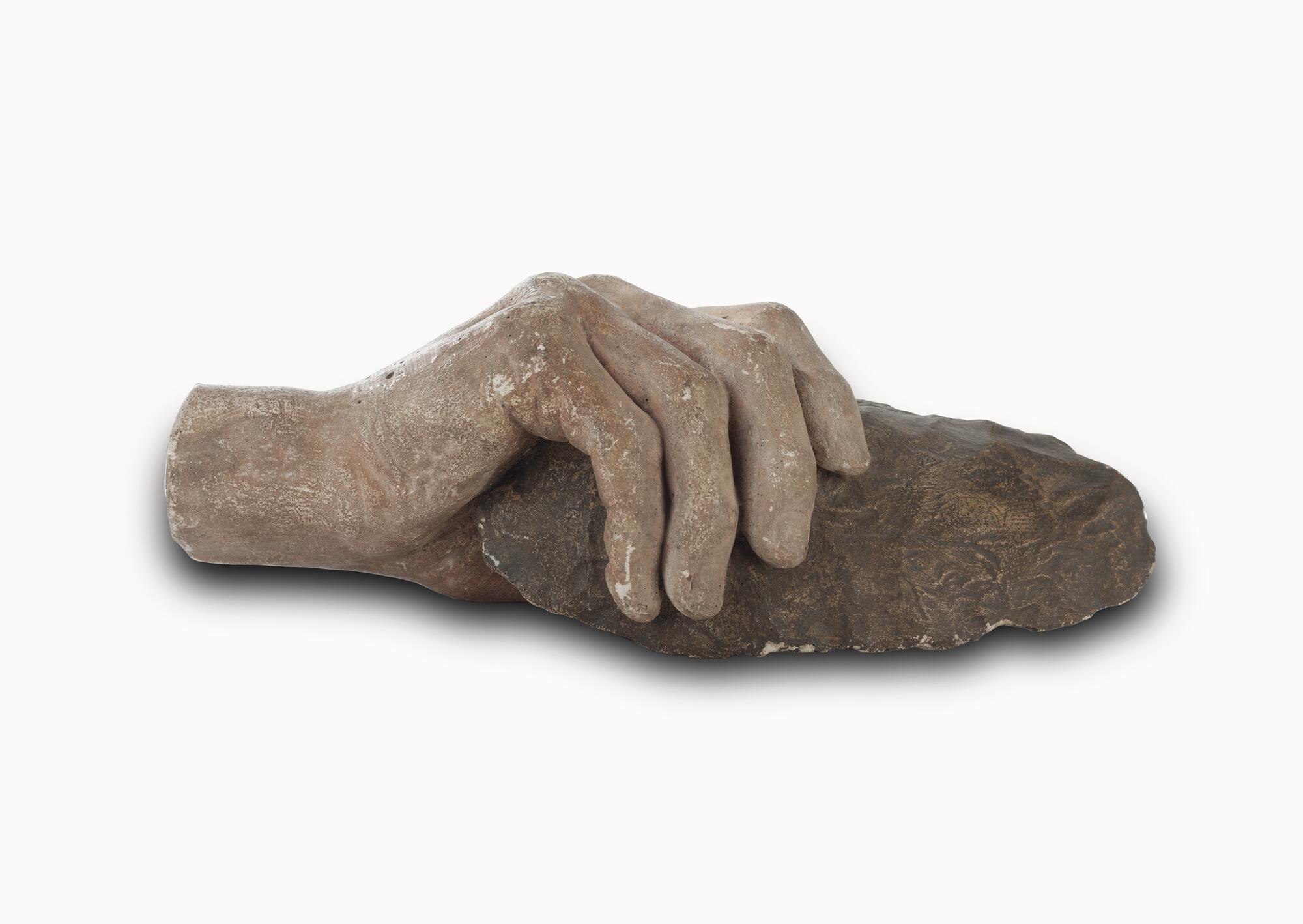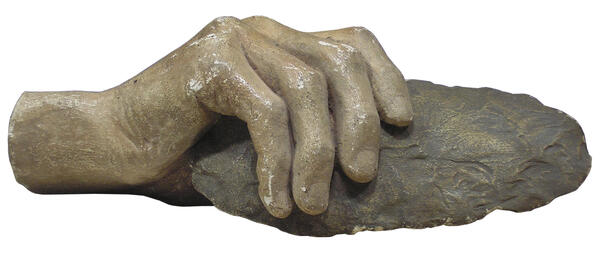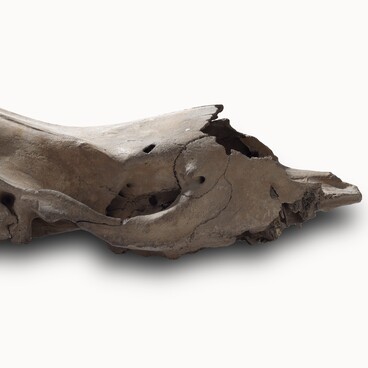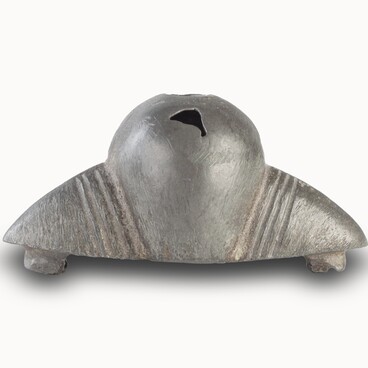The Kursk Regional Museum of Archaeology keeps a plaster cast of the hand of Mikhail Vatslavovich Voevodsky, clutching a flint chopping tool.
Mikhail Voyevodsky (1903–1948) was a professor at the Moscow State University, a prominent Soviet archaeologist, a researcher at the Museum of Anthropology and head of the laboratory of the Institute of the History of Material Culture of the USSR Academy of Sciences. The cast was made by his students during the field season in 1946.
For a long time this cast was kept by Sergey Nikolaevich Alekseev, a researcher of the Stone Age era, who once took active part in archaeological excavations as a member of the expedition of the archaeologist Gennady Pavlovich Grigoriev, and later conducted independent research in the area of the modern Kursk region. In 2003, the plaster cast was transferred to the Kursk Regional Museum of Archaeology where it is an honored part of the exhibition devoted to the history of studying the Kursk antiquities.
Mikhail Voevodsky was the author of more than 40 scientific works. His main field of interest was Stone Age studies on the territory of the USSR. Since 1936 he headed the Desninsky expedition, which explored the archaeological monuments of the Desna River basin from the Palaeolithic period to the late Middle Ages.
In August 1946, Mikhail Voevodsky visited Kursk for the first time. While viewing the exhibition of the Kursk Regional Museum of Local History, he noticed the flint implements collected by the museum staff on the outskirts of the village of Avdeyeva (present-day Oktyabrsky District). Exploratory excavations conducted at the site revealed a settlement of primitive hunters of the Stone Age. The work conducted by the Desninsky expedition in 1947–1948 marked the beginning of a new stage in the archaeological studies of the Kursk land. The expedition staff conducted excavations of the Avdeevskaya upper paleolithic site, investigated the Lipinsky archaeological complex (fortress, village settlement, burial mound and burial ground), examined the Scythian settlements near Avdeyeva and Lipina.
The 1948 field season was the last for Mikhail Voevodsky. On October 23, he died after a throat cancer surgery. However, the research begun by the Desninsky expedition was continued by a whole plethora of outstanding Soviet archaeologists.
Mikhail Voyevodsky (1903–1948) was a professor at the Moscow State University, a prominent Soviet archaeologist, a researcher at the Museum of Anthropology and head of the laboratory of the Institute of the History of Material Culture of the USSR Academy of Sciences. The cast was made by his students during the field season in 1946.
For a long time this cast was kept by Sergey Nikolaevich Alekseev, a researcher of the Stone Age era, who once took active part in archaeological excavations as a member of the expedition of the archaeologist Gennady Pavlovich Grigoriev, and later conducted independent research in the area of the modern Kursk region. In 2003, the plaster cast was transferred to the Kursk Regional Museum of Archaeology where it is an honored part of the exhibition devoted to the history of studying the Kursk antiquities.
Mikhail Voevodsky was the author of more than 40 scientific works. His main field of interest was Stone Age studies on the territory of the USSR. Since 1936 he headed the Desninsky expedition, which explored the archaeological monuments of the Desna River basin from the Palaeolithic period to the late Middle Ages.
In August 1946, Mikhail Voevodsky visited Kursk for the first time. While viewing the exhibition of the Kursk Regional Museum of Local History, he noticed the flint implements collected by the museum staff on the outskirts of the village of Avdeyeva (present-day Oktyabrsky District). Exploratory excavations conducted at the site revealed a settlement of primitive hunters of the Stone Age. The work conducted by the Desninsky expedition in 1947–1948 marked the beginning of a new stage in the archaeological studies of the Kursk land. The expedition staff conducted excavations of the Avdeevskaya upper paleolithic site, investigated the Lipinsky archaeological complex (fortress, village settlement, burial mound and burial ground), examined the Scythian settlements near Avdeyeva and Lipina.
The 1948 field season was the last for Mikhail Voevodsky. On October 23, he died after a throat cancer surgery. However, the research begun by the Desninsky expedition was continued by a whole plethora of outstanding Soviet archaeologists.



